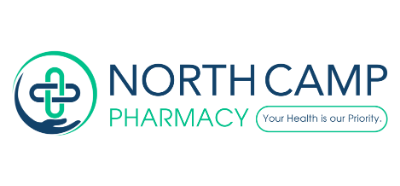
The recommended treatment for aphasia is usually speech and language therapy. Sometimes aphasia improves on its own without treatment.
This treatment is carried out by a speech and language therapist (SLT). If you were admitted to hospital, there should be a speech and language therapy team there.
When you leave hospital, an SLT should be available through a community rehabilitation team or, after a stroke, an early supported discharge team.
If you weren't admitted to hospital or didn't see an SLT while you were there, you can ask your GP to refer you.
In some areas, you can contact your local speech and language therapy department directly.
Most people with aphasia need many hours of speech and language therapy to recover to their full potential.
For people with aphasia, speech and language therapy aims to:
How the therapy is carried out will depend on your circumstances.
An intensive course of speech and language therapy may be recommended for some people. This involves a number of sessions given in a shorter period of time.
But speech and language therapy can be exhausting, and an intensive course of treatment won't be suitable for everyone.
For some people, shorter and less intensive sessions may be recommended.
Therapy may be individual sessions, in groups, or using technology such as computer programmes or apps.
For many people with aphasia caused by stroke, the most rapid changes are early on in the weeks and months after their stroke.
But improvements can continue to be seen many years, and even decades, later.
The treatment you receive will depend on your general health and the difficulties you have with your speech, language or social skills.
An assessment will be carried out before therapy begins so the therapist can identify which aspects of language you have the most difficulty with.
A therapist will talk to you and your family to try to determine whether your problems are related to understanding language or if you have problems expressing yourself.
The assessment will then focus on the areas that need to be targeted in therapy.
Other health problems that may impact your ability to communicate, such as hearing or sight problems, will also be taken into account.
The specific techniques used and the aims of the treatment will depend on each person's circumstances.
If you have difficulty understanding words, your SLT may ask you to carry out tasks such as matching words to pictures or sorting words by their meaning.
The aim of these tasks is to improve your ability to remember meanings and link them with other words.
If you have difficulty expressing yourself, your SLT may ask you to practise naming pictures or judge whether certain words rhyme.
They may also ask you to repeat words that they say, with prompting if necessary.
If you're able to complete tasks with single words, your therapist will work on your ability to construct sentences.
Some techniques may involve working with a computer. Other methods may include group therapy with other people with aphasia, or working with family members.
This will allow you to practise conversational skills or rehearse common situations, such as making a telephone call.
An increasing number of computer-based programmes and apps are available to help people with aphasia improve their language abilities. But it's important to start using these with the supervision of an SLT.
An important part of speech therapy is finding different ways for you to communicate.
Your therapist will help you develop alternatives to talking, such as using gestures, writing, drawing or communication charts.
Communication charts are large grids containing letters, words or pictures.
They allow someone with aphasia to communicate by pointing at the word or letter to indicate what they want to say.
For some people, specially designed electronic devices, such as voice output communication aids (VOCAs), may be useful. VOCAs use a computer-generated voice to play messages aloud.
This can help if you have difficulty speaking but are able to write or type.
There are also apps available on smartphones and computer tablets that can do this.
If a communication device is thought to be beneficial, funding for the purchase of an individual device can be discussed with an SLT.
If you live with or care for a person with aphasia, you may be unsure about the best way to communicate with them.
You may find the following advice helpful:
Research is currently being carried out to study whether other treatments can benefit people with aphasia.
These include:
Although some studies have suggested these treatments may benefit some people with aphasia, further research is necessary.
Helping to care for a loved one, relative or friend with aphasia can be a daunting and challenging prospect, particularly during the first few months of symptoms starting.
People with aphasia often have complex needs, and their condition can make them prone to mood swings and challenging behaviour.
If you're caring for someone with aphasia, you may find the social care and support guide useful.
This page in the dementia guide about communicating with someone with dementia has some information and advice that may help when communicating with someone with aphasia.
The Stroke Association provides help and support for people affected by aphasia.
The Aphasia Alliance is a group of organisations that support people with aphasia and their families.






































